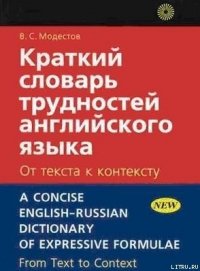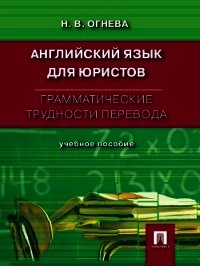Английский для экономистов (учебник английского языка) - Шевчук Денис Александрович (читать бесплатно книги без сокращений .txt) 📗
To handle, to accomplish, goal, benefit, coerce, to achieve, to purchase, output, affect, to establish, to enhance, power.
Ex. 8. Translate into Russian. Pay attention to the economic and business terms.
1. Business is the production, buying, and selling of goods and services.
2. A business, company, or firm is an organization that sells goods or services.
3. A business is also may be referred to as an enterprise to emphasize its adventurous, risk-taking qualities, and business in general may be referred to as free enterprise and private enterprise.
4. Large companies are referred to as corporations, especially in the US.
5. Large companies operating in many countries are multinationals.
6. An entrepreneur is usually someone who builds up a company from nothing: a start-up company.
7. The people legally responsible for a company are its board or board of directors.
8. When a private company is bought by the state and brought into the public sector, it is nationalized.
9. When the state returns a company to the private sector in a sell-off, it is privatized.
10. A holding or holding company is one that holds stakes in one or more subsidiaries.
11. A holding company’s relationship to its subsidiaries is that of parent company.
What words and word combinations from ex. 8. do you consider to be economic and business terms? Explain what they mean.
Ex. 9. Translate the following text in written form.
The Interdependence of Society and Organizations
Modern societies have been called organizational. Unlike so-called prim–itive societies, modern ones produce most of their goods and services through special-purpose organizations that are, in the main, neither famil–ial nor tribal. Some of the organizations of a modern society are meant to earn a profit and some are «not-for-profit».
The organizational mode of conducting society's affairs means that virtually everyone in modern societies depends mightily upon how well organizations function. We look to them for goods and services of ade–quate quantity, quality, and a low enough price. We look to them for jobs to earn the money to buy what we need. We depend upon them for decent and healthful environments on and off the job.
In turn, organizations depend upon the contributed talent and effort of people who work in them. Every organization must obtain these con–tributions and other resources and convert them into some outputs that yield sufficient rewards to keep the organization alive and functioning. In a word, the relationship of society and organizations is one of interdependence. But what kind of interdependence?
Managerialism ( the ideological principle on which the economic, social and political order of advanced industrialized societies is actually based) proclaims that the society is made up of organizations, corporations, associations, and so forth – not individuals. Social decisions are a consequence of the interactions of the managers of the social units – not the will of the people, the demands of consumers, or the needs of workers.
1. Do you share the point of view of the author of the text?
LET’S READ AND TALK
1. Why do people try to «organize» themselves?
2. What formal and informal organizations do you know?
3. “Informal groups develop in order to meet a variety of individual needs which are not met by the formal organization.” Do you share this opinion?
TEXT 1
Read the text. Define the main idea of each paragraph. What are the key sentence(s) of each paragraph?
ORGANIZATION
Early in human existence people learned that their individual efforts often fell short of success. They found that they were unable to accomplish many tasks that require more than individual effort. The result was that only limited goals could be attained. Therefore the necessity of group activity was discovered relatively early in human existence.
Group activity could be aimed at some higher, more complex set of goals and could thus bring greater benefits to all concerned. This quality of group activity must be counted as one of the chief requirements for success. Cooperation is a prime element of a group of people who want to achieve more than they can acting individually. A system of group relationships built upon and fostering cooperation, then, is basically the meaning of an organization.
This system of cooperation consists of several parts: the human element, the physical element, the work element, and the coordination element. All of these elements, taken collectively, can be thought of as an organization. Today, this system of cooperation is much more complex than it was in the first attempts at organization.
Thus, organization is an open, dynamic, purposeful social system of cooperation designed to enhance individual effort aimed at goal accomplishment; consists of the human element, the physical element, the work element, and the coordination element; transforms resources into outputs for users.
It is important to examine the various parts or components of organization theory in order to outline its broad scope. These components are:goals, work, power and authority, delegation, structure.
It was stated earlier that organizations were established to enable an individual to accomplish more in a group than he could as an individual. In other words, organizations are devices for pooling talent and ability into an effective whole that can accomplish some desired objective. Every organization is initially built to accomplish some goal. The goal or purpose is an unrealized state or condition that the members do not possess but which they deem desirable. It is imperative that organizational goals be clearly defined and communicated to all organization members who are to be affected by them. Goals are the starting point for the design and maintenance of the organization itself. At the same time, these goals must meet a need that society has defined as important. Thus, consumer needs play a crucial role in organization.
Once the goal of an organization is established, it is time for the members to decide on the type of work activity that will be necessary to accomplish these goals. Basically, any organization must perform two fundamental types of work: primary and secondary. The primary work (it also commonly referred to as line work) consists of production and distribution of goods and services that will satisfy consumer needs. The secondary work (it is often termed staff work) consists of all those activities that support and extend the operations of primary work. For example, in a manufacturing firm, the secondary work would include accounting, personnel and quality control.
No theory of organizations would be complete without a treatment of the roles that power and authority play in organizational activity. These two components of theory help explain the network of relationships that tie the other components of an organization together into some logical pattern.
Power is the ability to influence others successfully. It comes from any single or combination of possible sources. For example, one can have power over others because of one’s intelligence, skill, or money. Regardless of its source, power enables its holder to exercise one’s will over others. Thus, in order to understand the total workings of an organization, one must have an appreciation of the role that power plays in these workings.
Authority can be defined as power that has been given official recognition bythe organization. Once an organization legally authorizes an individual to act on its behalf, that person is said to possess authority. Every member of the organization has some amount of authority to take action necessary to carry out his responsibility. The concern of the theorist is to understand how authority comes to be officially recognized by the organization and what considerations should be made regarding its use.




